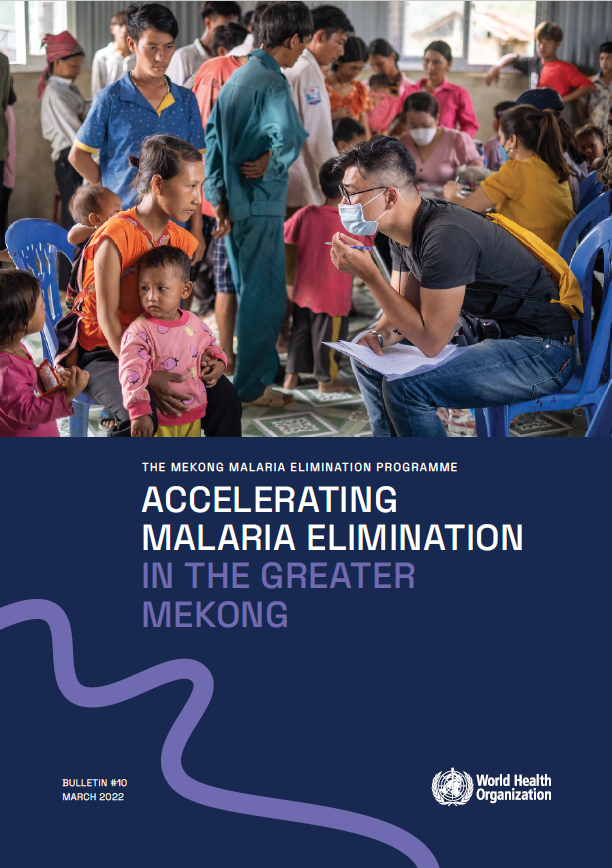Last Updated: 17/12/2024
Expanding mobile malaria services to hard-to-reach communities in northern Cambodia
Objectives
The main goal is to contribute towards Cambodia’s goal of eliminating P. falciparum by 2023 and P. vivax by 2025.
In particular, the project aims to:
- Provide effective personal protection, such as long lasting insecticidal nets (LLINs) for beds and hammocks, to at least 90 percent of the population at risk nationally.
- Achieve universal coverage of early malaria detection services and safe treatment of cases among all high-risk populations.
- Operationalise national guidelines to ensure effective case investigation and real-time notification of confirmed cases, and support foci investigations in collaboration with the provincial health departments and operational districts.
In Cambodia, forest goers and mobile and migrant populations contribute to sustained malaria transmission. As the country works to eliminate Plasmodium falciparum, it is essential to continue to deliver effective malaria prevention and control services, especially to hard-to-reach communities. Building on the high-quality implementation and successful results achieved under the RAI-ICC and RAI2E projects, Malaria Consortium will continue to support these efforts through the Regional Artemisinin-resistance Initiative 3 Elimination (RAI3E) project.
Malaria Consortium will implement the project in six provinces on the border with Thailand, Laos and Vietnam: Stung Treng, Preah Vihear, Ratanakiri, Mondulkiri, Oddar Meanchey and Banteay Meanchey. The project will focus on a zone of 10 kilometres inland from the border, with malaria posts placed at strategic entry/exit points.
The mobile malaria workers (MMW) activities will include:
- Conduct health promotion activities to raise community awareness of malaria transmission, effective personal protection, testing and treatment.
- Distribute LLINs to ensure universal coverage in high-risk areas.
- Diagnose and investigate suspected cases, and identify, test and treat confirmed cases among co-travellers.
- Establish community networks in multiple hotspots, using the community dialogue approach to promote behaviour change.
- Capture and share quality data with health centre staff, for entry into the malaria information system.
Health Systems
Impact of Interventions
Indigenous Cases & Importation
Leadership & Governance
Operational Research
P. vivax
Residual Transmission
Vulnerable Populations
Jan 2021 — Dec 2023
$1.59M

